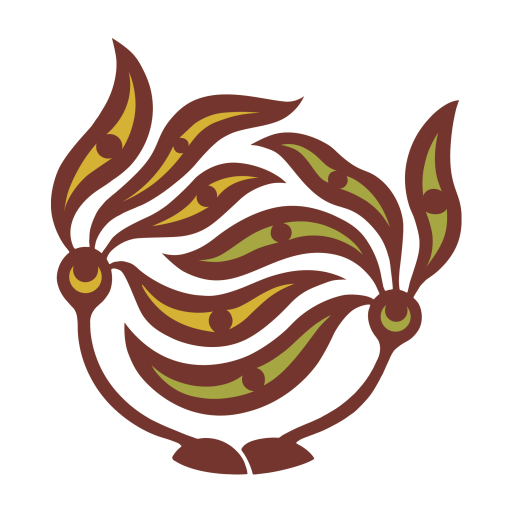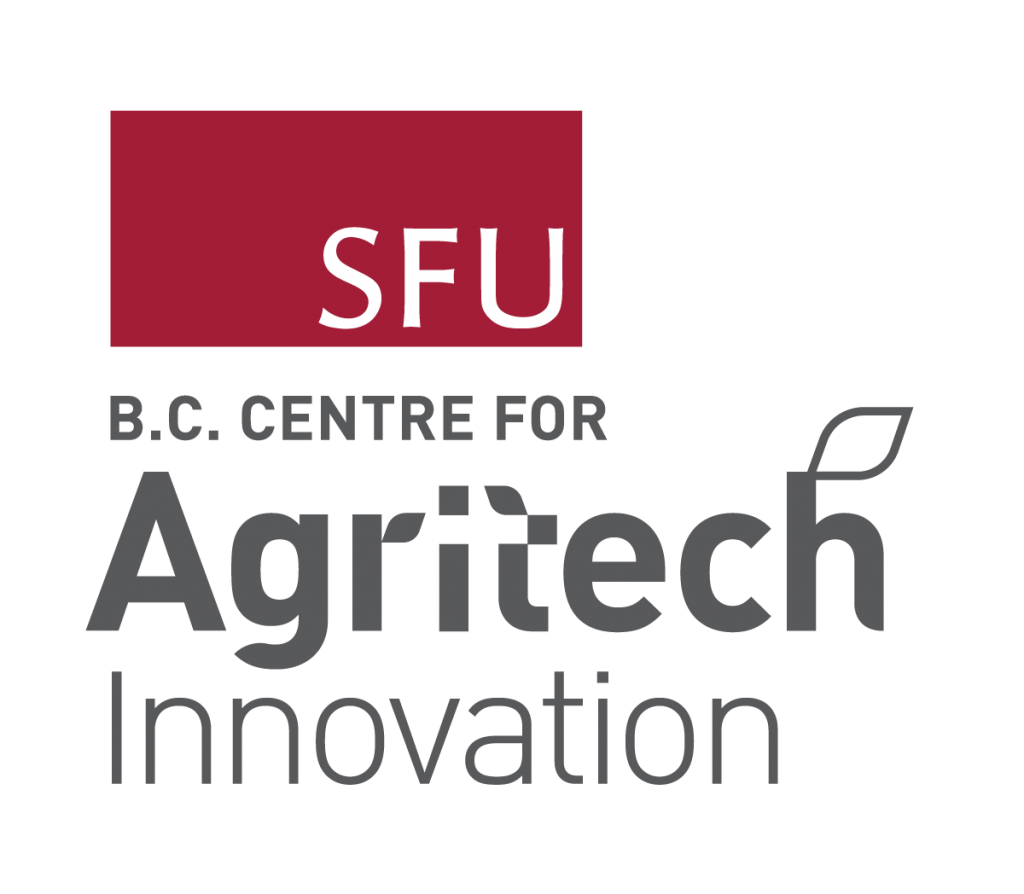Workshops
Workshops
There are lots of opportunities to expand your knowledge outside of the official symposium. Consider signing up for a pre-conference workshop (held on Sunday, May 4, 2025) or a mid-conference workshop (held on Wednesday, May 7, 2025). Descriptions are below.
All workshops except for the Kelp Forest Challenge can be booked through the official symposium registration site.
Quick Links
To learn more about each workshop, please click the buttons below.
Sunday, May 4, 2025
SUNDAY, MAY 4, 2025
Workshop 1: Kelp Forest Challenge: Regional strategies and action plans for protecting and restoring 4 million hectares of kelp forests by 2040.
Sunday, May 4, 2025: 9:00am – 5:00pm
PRESENTER: Mr. Aaron Eger, Kelp Forest Alliance, Program Director, Postdoctoral Researcher
The Kelp Forest Challenge calls for the restoration and protection of 4 million hectares of kelp forests by 2040. Following the launch of the Challenge, we collectively produced a roadmap for achieving our goals and scaling up kelp forest conservation worldwide. This roadmap provided high level advice and actions for the global community but lack specificity at the country or state level. This workshop will bring together experts from many different fields related to kelp conservation to begin working on country-specific roadmaps or action plans for scaling up kelp forest conservation in each country. The Kelp Forest Alliance will provide an update on the amount of kelp forest protected and restored in each country, and we will organize into region specific working groups to identify the barriers and next steps for scaling up kelp conservation locally and as a result, globally.
This workshop cannot be booked through the official symposium registration portal, but is available through the below link.
[SOLD OUT]
Workshop 2: A Comprehensive Monitoring Evaluation and Learning Framework for Restorative and Regenerative Seaweed Aquaculture
Sunday, May 4, 2025: 1:00pm – 3:30pm
LOCATION: Victoria Conference Centre, specific details to follow
PRESENTER: Ms. Tiffany Waters, The Nature Conservancy, Global Aquaculture Program Manager
The Nature Conservancy recently published a MEL framework for restorative and regenerative aquaculture that creates a shared language and guides a common and consistent approach to monitoring and measuring the environmental and social benefits of aquaculture, including seaweed farming. The next phase for this framework is to pilot deployment of low-cost farmer-led monitoring approaches that can expand the evidence-base for benefits from aquaculture and make this data more accessible to stakeholders through open access data management. To deliver this project we will work with a cohort of partner farmers and companies, as a ‘pilot network. Data collected will be analyzed for ecological and social benefits, and their economic value, building global understanding and recognition of ecosystem services, and will validate a consistent, replicable approach to monitoring and evaluation. Objectives: Provide an overview of The Nature Conservancy’s recently published monitoring evaluation and learning (MEL) framework to empower farmers and companies to measure environmental and social benefits on their farm Exchange observations and learnings on seaweed aquaculture environmental and social benefits to inform knowledge development Identify key challenges, needs, opportunities, and next steps for collaboration for the deployment and broader use of low-cost farmer-led monitoring for effective MEL.
Learning Outcomes:
*Farmers and researchers can identify and measure the environmental and social benefits they may be providing on their farm and can more clearly understand and confidently communicate these benefits.
*The Nature Conservancy has a better understanding of how to support farmer-led monitoring and ensure ecosystem services data is accessible, standardized, rigorous and useful to stakeholders.
[SOLD OUT]
Workshop 3: Seaweed Biorefineries and a Future Circular Bioeconomy: Are We Really Ready?
Sunday, May 4, 2025: 9:30am – 12:30pm
LOCATION: Victoria Conference Centre, specific details to follow
PRESENTER: Dr. Emily Kostas, University College London (UK), Lecturer
Seaweed biorefineries have the potential to economically strengthen a number of industrial sectors, whilst helping the circular bioeconomy and mitigating climate change on a global scale. This proposed workshop forms part of a UKRI Future Leader’s Fellowship programme, led by Dr Emily Kostas at University College London (UK), that focuses on developing scalable seaweed biorefineries for the biomanufacture of seaweed-derived bioproducts, biomaterials and biofuels for our bioeconomy. The key objective of this workshop is to provide attendees with an enhanced understanding of a future seaweed circular bioeconomy. Attendees will learn about the basic concepts of seaweed biomass biorefining, target bioproducts/biomaterials of interest across different industries, compatible technologies and bioprocessing, and the scalability of future seaweed biorefineries. Through the delivery of a Futures Thinking approach, attendees will then be guided through a joint exploration exercise of future scenarios based on a prospective seaweed bioeconomy. This will serve as an open and inclusive space for attendees to raise any key societal, environmental and economical questions or challenges they foresee to be associated with a future seaweed bioeconomy, and to discuss how raised concerns can be reframed as actionable targets; aiding responsibility in future seaweed biorefinery research design. The same workshop will also be held in Scotland, Wales and London (in the UK) where key findings will be analysed and presented in a stakeholder engagement report.
Workshop 4: Addressing fundamental gaps in seaweed taxonomic knowledge: Workshop IV
Sunday, May 4, 2025: 1:30pm – 4:30pm
PRESENTER: Professor Juliet Brodie, Natural History Museum, Merit Researcher, Phycology
Global Seaweed Biodiversity Group
Objective: To continue to develop the global seaweed strategy to address fundamental gaps in seaweed taxonomic knowledge.
Learning outcomes: Participants will know the aims of the project and progress so far. They will also have insight into the approach that we have developed to speed up progress on the systematics of the calcified coralline algae (CCAs) and how this could be adapted for other groups.
Description: This workshop builds on workshops I-III (ISS 2023 Tasmania; EPC 2023 Brest and 2024 Paris respectively). WI: brought together the seaweed community and identified key topics for development. WII agreed to start with CCAs, Ulvales, and kelps. WIII focused on the CCAs to develop an approach to accelerate taxonomic progress. A manuscript has been drafted for the Journal of Phycology and protocols are being developed. The aim of WIV is to report on CCA progress and share the approach as a model that could be adapted for other taxonomic groups. As the workshop will be at ISS, we will also focus on economically important groups, including an update on eucheumatoid progress and setting up groups for the Bangiales and Gigartinales.
Draft program:
13:30: Welcome (all)
13:40: Introduction and aims (Juliet)
13:45: Eucheumatoid progress (Phaik Eem Lim)
13.55: CCA project (CCA member/Juliet)
14:15: Discussion
14:30: Introduction to breakout sessions
14:35: Break
14:45: Breakout sessions
15:20: Feedback
15:45: Discussion and closing remarks
This workshop is open to ISS delegates and non-delegates.
To register to attend this workshop live, visit the registration portal for the Symposium. To attend this workshop online, please reach out to Juliet Brodie.
PLEASE NOTE: In order to attend this workshop in person, you must be registered for the ISS25 Symposium. If you are not registered for the Symposium, you may attend the workshop online only. There is no closing date, but spots are limited.
Workshop 5: Exploring Needs and Opportunities for Improved Monitoring of the Benefits and Impacts of Seaweed Farming in Alaska and British Columbia
Sunday, May 4, 2025: 9:00am – 1:00pm
LOCATION: Victoria Conference Centre, specific details to follow
PRESENTER: Dr. Natascia Tamburello, ESSA Technologies Ltd., Sr. Systems Ecologist
There is increasing attention on sustainable development of the seaweed farming sector. As part of its Seaweed Farming program focused on the Northeast Pacific, the Pew Charitable Trusts is leading an effort to (1) identify priority data needs for assessing both the cumulative and farm-level ecological benefits and impacts of the sector as it scales and (2) explore opportunities for filling those data needs where this nascent sector is currently experiencing rapid growth. To help inform the effort, this half-day workshop will convene practitioners, regulators, and experts working on seaweed ecology and aquaculture with the objective of discussing how and where improvements in monitoring could be made to better assess the environmental benefits and impacts of seaweed farms in the region. This workshop will include opening presentations on the current status of seaweed aquaculture, emerging sustainability themes, and existing datasets in British Columbia and Alaska, followed by a series of interactive group brainstorming breakouts contributing to the following collaborative learning outcomes:
- Understanding environmental benefits and impacts of interest for monitoring, with a focus on unique considerations for British Columbia and Alaska;
- Identifying considerations for selection of minimum environmental monitoring indicators;
- Understanding promising monitoring methods and knowledge sources, including the role of Indigenous knowledge and community-based monitoring; and
- Creating monitoring designs that would enable assessment of causal and cumulative effects.
These collaborative discussions will yield new insights that will inform the development of a report and recommendations focused on strengthening monitoring in the seaweed farming sector.
[SOLD OUT]
Workshop 6: Edible Seaweeds of the Pacific Northwest: A Wild Seaweed Tasting
Sunday, May 4, 2025: 3:45pm – 5:30pm
LOCATION: Victoria Conference Centre, specific details to follow
PRESENTER: Ms. Amanda Swinimer, Dakini Tidal Wilds, Owner/Operator
The Pacific Northwest is home to the greatest cold water seaweed diversity on the planet, including a wide variety of edible seaweeds. Seaweed is nature’s most nutrient-dense food, packed with vitamins, minerals, protein, fibre, essential fatty acids and prebiotics and possesses a distinct and inimitable taste. Seaweeds truly embody the flavour of the sea. Their salty, mineral-forward profile perfectly encapsulates the elusive umami taste. During this wild seaweed tasting workshop, participants have the chance to taste nine different local seaweeds—most of which are not available anywhere commercially—making this a unique culinary opportunity! While tasting each of the different seaweed varieties, participants will learn how they are sustainably harvested, their nutritional and health properties, culinary uses and their fundamental ecological role. Your host on this one-of-a-kind culinary journey is seaweed harvester and marine biologist Amanda Swinimer. Working closely with chefs, she founded her own business, Dakini Tidal Wilds, in 2003, and provides many of Victoria’s finest restaurants with gently dried seaweeds that she has wild-harvested by hand. Swinimer is also an educator and international speaker and the author of The Science and Spirit of Seaweed: Discovering Food, Medicine and Purpose in the Kelp Forests of the Pacific Northwest and The Science and Superpowers of Seaweed: A Guide for Kids.
Learning Outcomes:
*Seaweed identification
*Nutritional and health properties of edible seaweeds
*Flavour profile of nine edible seaweeds
*Culinary uses of seaweeds
*Sustainable harvest methods
*Ecological role of seaweeds
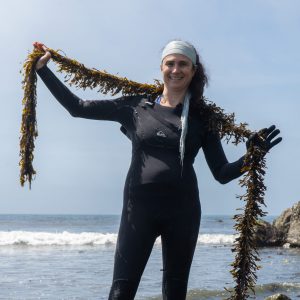
Workshop 9: Designing Multiple Driver Experiments
Sunday, May 4, 2024: 9:00am – 5:00pm
LOCATION: Victoria Conference Centre, specific details to follow
PRESENTER:
Dr. Christopher Cornwall, Victoria University of Wellington, Senior Lecturer
Prof. Catriona Hurd, Institute for Marine and Antarctic Studies, University of Tasmania, Lecturer
Denisa Berbece, Victoria University of Wellington, Lecturer
The MEDDLE resources were developed to help researchers design and carry out tractable, intercomparable multiple driver experiments. In this workshop, participants will learn how to use these resources to design multiple driver experiments in an ocean acidification context. Topics include:
- Defining the research question
- Identifying relevant drivers
- Identifying biological traits and responses
- Experimental designs for multiple driver experiments
- Statistical analysis plans
- Testing your design and analysis with the MEDDLE simulator
The workshop will involve a mixture of pre-workshop learning, short talks by on site experts, use of pre-recorded videos from other world experts, and group discussions and feedback.
WEDNESDAY, MAY 7, 2025
[SOLD OUT]
Workshop 7: Seaweed Cyanotyping Photography
Wednesday, May 7, 2024: 11:00am – 1:00pm
LOCATION: Victoria Conference Centre, specific details to follow
PRESENTER: Dr. Bridgette Clarkston, University of British Columbia, Associate Professor
Cyanotype photography is a camera-less method that involves laying an object on paper or fabric coated with a light sensitive solution. After exposure to sunlight and rinsing with water, the result is a stunning white and Prussian blue image. The botanist & naturalist Anna Atkins (1799-1871) was the first person to publish a book of photographs. Her beautiful images were – you guessed it – cyanotype photographs of seaweeds!
Come revel in some phycological history and create your own beautiful seaweed cyanotype prints. Makes a fabulous souvenir of your time at the International Seaweed Symposium! All participants will have the opportunity to create at least two prints on high-quality watercolour paper.
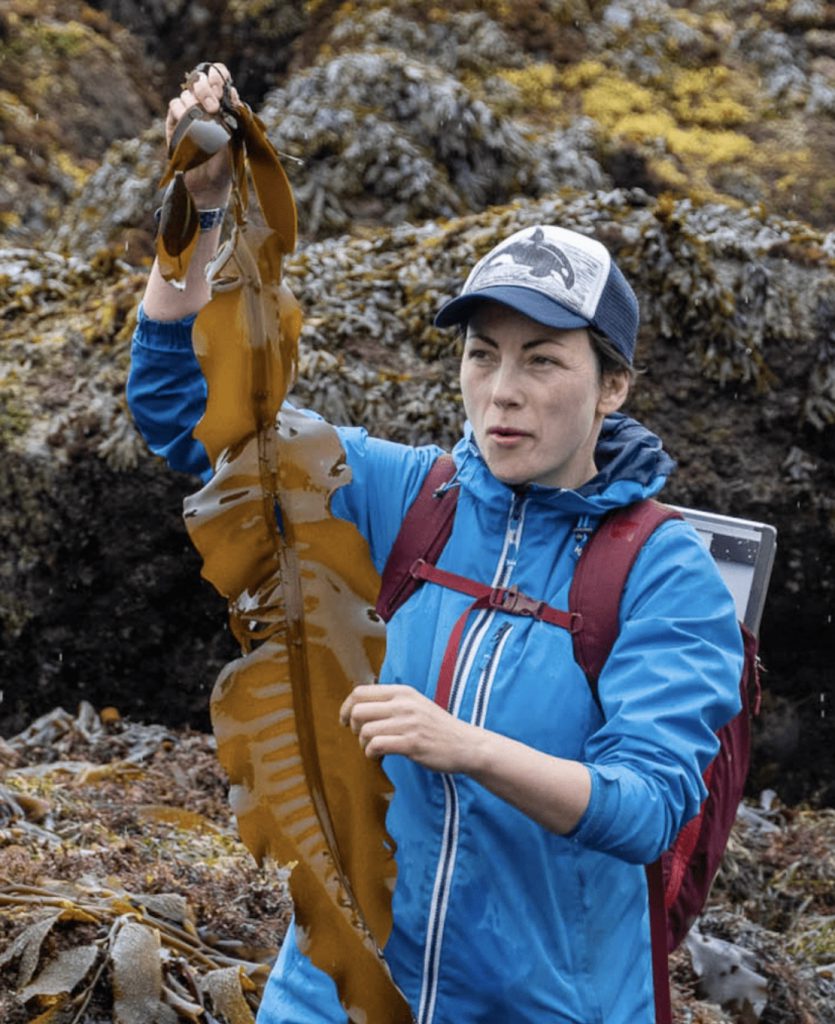

[SOLD OUT]
Workshop 8: Thalassotherapy: Ocean Medicine for Opulent Health
Wednesday, May 7, 2024: 3:00pm – 4:30pm
LOCATION: Victoria Conference Centre, specific details to follow
PRESENTER: Ms. Angela Willard, Harmonic Arts, Co-founder
Thalassotherapy is an old-world practice of using components from the sea in a spa ritual setting to nourish the body, calm the mind, and soothe the soul; literally working from the outside-in. Hot seaweed baths, out in the wild elements of nature, have been a major component of this practice.
In this class, we will focus our time on learning about the history and traditional use of topical seaweed bath and body care applications for use during health and cleansing routines, and create some simple and effective recipes. In addition, we’ll explore some more innovative ways in which seaweeds can be added to other herbal topical care products, to enhance their beneficial properties, add texture, and even help in their preservation.
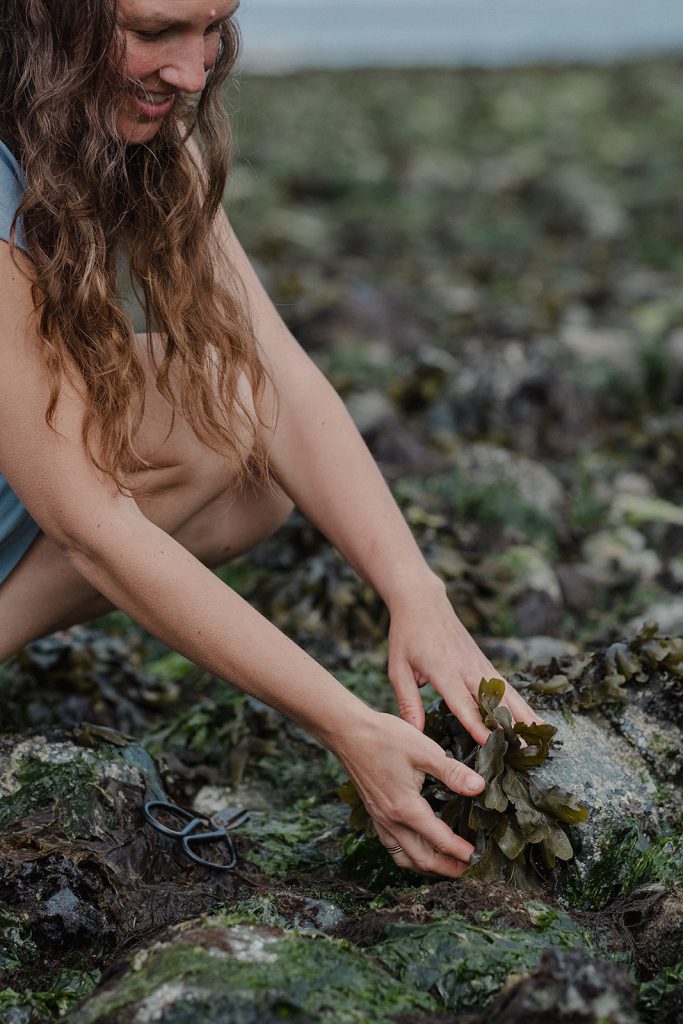
There will be some fun hands-on work we will do which will give you a “feel” for the ways in which seaweeds respond harmoniously with other nutritive ingredients- a distinctive quality that has seaweed showing up in all kinds of products, far beyond body care. You may be surprised to discover just how many times seaweed has already crossed your world!
ABOUT THE PRESENTER:
Angela Willard has been working as an herbalist since 2005, when she graduated from the Clinical Herbalist program at Wild Rose College of Herbal Medicine. Her journey as an Herbalist brought her to the ocean’s herbal medicine chest as more and more collective health issues kept pointing her there to find effective remedial support. She has since dedicated the past 17 years to studying seaweeds under the guidance of Phycology researchers worldwide, emphasizing a strong focus on working with seaweed for health, and is creator of the in-depth course Seaweed Therapeutics. As Co-Founder of Harmonic Arts, she continues her work within the company to grow and maintain its grassroots herbal values. Angela balances her efforts between being an Herbalist, supporting her company’s vision, and devotion as a mother in raising a thriving family.”


